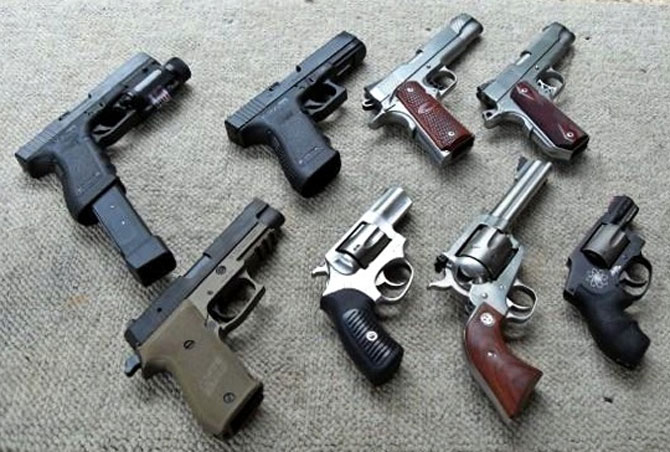Poll: Majority of Americans Support Gun Policy Reforms

Most Americans favor dozens of policies that aim to reduce gun violence, according to a new national poll.
Researchers at the Johns Hopkins Bloomberg School of Public Health surveyed more than 2,700 Americans about 31 gun policies in January, several weeks after the Dec. 14 mass shooting of 26 people at an elementary school in Newtown, Conn. The majority of respondents supported all but four of the policies, the survey showed, and gun owners and non-gun owners differed little in their support.
For instance, 89 percent of respondents supported requiring universal background checks for all gun sales; 69 percent supported banning the sale of military-style semi-automatic assault weapons, and 68 percent wanted to ban the sale of large-capacity ammunition magazines.
The majority of those surveyed also supported prohibiting high-risk individuals from owning guns, including those convicted of a serious crime as a juvenile (83 percent in favor) and those convicted of violating a domestic-violence restraining order (81 percent in favor).
The results suggest that most Americans, whether they own a gun or not, support a wide range of policies to reduce gun violence. "These data indicate broad consensus among the American public in support of a comprehensive approach to reducing the staggering toll of gun violence in the United States," study leader Colleen Barry said in a statement.
The researchers also conducted a survey of 1,530 Americans about their attitudes toward mental illness, a topic on which people were more divided. Sixty-one percent of those surveyed supported greater spending on mental health screening and treatment as a means of reducing gun violence, and 58 percent believed discrimination against people with mental illness is a serious problem.
Even so, nearly half of respondents considered people with a serious mental illness to be more dangerous than other people, and two-thirds said they wouldn't want someone with such an illness as a neighbor.
Get the world’s most fascinating discoveries delivered straight to your inbox.
Leaders need to take caution to effectively implement policies to reduce gun violence without worsening the stigma of mental illness or discouraging people from seeking treatment, Barry said.
The results of both surveys were published online Monday (Jan. 28) in The New England Journal of Medicine.
The recent push for gun reforms is not new. The Brady Handgun Violence Prevention Act was signed into law in 1993, requiring background checks designed to prevent convicted felons and other potentially violent individuals from buying handguns.
Shortly after the Newton school shooting, New York City Mayor Michael Bloomberg rolled out a three-part plan aimed at pressuring the next Congress to address gun violence.
Earlier this month, President Obama put forth 23 executive actions to reduce the chances of further gun violence, including a memo to the Centers for Disease Control and Prevention (CDC) to renew its gun violence research program.
Follow LiveScience on Twitter @livescience. We're also on Facebook & Google+.



